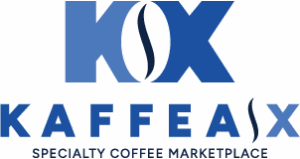The global demand for specialty coffee continues to increase. However, importers and exporters—the individuals responsible for transporting coffee from farms to roasters—face numerous challenges. They contend with unstable markets, outdated systems, increasing compliance requirements, and logistical hurdles that complicate the movement of coffee. These obstacles make it difficult for them to meet the rising demand while maintaining quality and efficiency.
This post explores the real-world challenges importers and exporters face in the specialty coffee trade—and how platforms like Kaffea-X help them navigate these complexities.
Pricing Volatility and Market Pressures
Unpredictable C-Market Swings
Even though specialty coffee commands prices above the commodity coffee price (C price), fluctuations still affect trade contracts and perceptions of value. Price spikes or drops can destabilize negotiations and strain producer-importer relationships.
Limited Transparency in Pricing Models
Many buyers still rely on traditional systems or verbal agreements. According to Perfect Daily Grind, speculative markets often influence pricing more than actual demand. Without transparency, building trust becomes difficult.
Logistical and Shipping Challenges
Rising Freight Costs and Delays
Port congestion, container shortages, and fuel surcharges have driven up freight prices. As a result, shipments that once took 4–6 weeks now often require twice as long. Importers must absorb these delays while managing customer expectations.
Complex and Risky Documentation
Exporters must handle customs clearance, certificates of origin, and phytosanitary documentation. Missing or inaccurate paperwork can lead to detentions or fines. Tools like Trade.gov offer guidance, but automation remains rare in many regions.
Financial and Contractual Risks
Cash Flow and Payment Gaps
Many importers pay in advance, while exporters often wait weeks—or months—for payment. This gap places stress on both sides and limits how many transactions they can manage at once.
Insurance Limitations and Legal Ambiguity
Trade contracts frequently lack clear legal terms or sufficient insurance coverage. Even when coverage exists, it may not apply to climate-related damage or contamination. The International Coffee Organization (ICO) recommends tighter documentation, but many deals remain informal.
Growing Need for Traceability and Compliance
Data Gaps at Origin
Roasters increasingly demand detailed origin data, including varietals, elevation, and labor practices. However, exporters often lack digital tools to collect or share that information efficiently. Importers then struggle to verify claims or meet buyer expectations.
Stricter Regulatory Frameworks
Governments worldwide are tightening import regulations. For example, the EU’s Deforestation-Free Products Regulation requires companies to prove that coffee wasn’t grown on recently deforested land. This shifts more compliance burden to exporters and importers.
Rising Sustainability and Ethical Trade Pressures
Cost of Responsible Sourcing
Implementing traceability programs and third-party audits requires time and money. Importers and exporters often invest heavily in these systems, even though the final brand or roaster gets the consumer credit.
Demand for Verified Impact Stories
Consumers want to know their coffee supports farmers and ecosystems. Yet, many importers lack the tools to tell that story credibly. Without reliable upstream data, verifying ethical sourcing claims becomes a major challenge.
How Kaffea-X Helps Solve These Challenges
At Kaffea-X, we understand the pain points across the specialty coffee supply chain. That’s why we built a platform that reduces friction and builds trust through:
- Standardized listings to simplify comparisons and eliminate confusion
- Real-time inventory updates for faster and smarter decisions
- Built-in traceability tools to document origin data and certifications
- Streamlined documentation workflows to avoid shipping delays
Instead of relying on spreadsheets, PDFs, and endless email chains, importers and exporters can use Kaffea-X to connect, collaborate, and trade transparently. Subscribe to be a part of the future of the specialty coffee trade.

